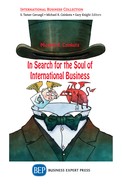Freedom and Globalization: Simultaneously Possible
(With Valbona Zeneli)

Globalization, trade, and investment deserve our “thank you” for their achievements. Yes, currently, in Europe and the United States, popular discontent is forcefully expressed. An introvert trend has emerged, fed by nationalism, populism, xenophobia, and antiglobalization rhetoric.
Globalization is not new; it has existed for centuries. What is different today is the speed of globalizing the world, made possible by new technologies, transportation networks, media, and international marketing. Many claim that never before in history has there been so much evidence about strong opposition to globalization. However, any comparison with the past is highly inaccurate. Only few records of resistance to globalization have been preserved for us today.
One main feature of globalization in our age is the conveyance of freedom, which in turn becomes the foundation of good life. There are three dimensions to this freedom. For one, the opportunity to collaborate with others, streamline processes and procedures, and increase the variety of products and services cause great freedom of choice. There is the freedom conveyed by sovereignty, where nations and their governments maintain and exercise preferences for their citizens. Individual countries will always seek to have sovereign freedom. Then there is the freedom of principles and options.
Such freedom of choice is primarily expressed by the recourse to deeply rooted principles that provide the boundaries of the playing field. If there is no limitation and no alternative, then there is no freedom. A true alternative requires a decision and the exercise of virtue. If there are no principles to which one can seek recourse, there is no freedom.
In reciprocal causality, freedom both causes and facilitates international marketing, while international marketing is a key support of the cause of freedom. The focus and aim of international marketing is on crossing borders, with the goal of providing more choice for consumers and letting them be the ones to maximize their satisfaction. International marketing does so in all corners of the globe, the glamorous ones as well as in the small and remote ones where its efforts are not seen by others.
When the long-standing rivalry between socialism and market economy came to an end, market forces directly improved human rights and the extent of freedom. Exchanges through markets have clearly demonstrated greater efficiency and effectiveness in their ability to satisfy the needs of people. Now they must demonstrate their ability to persist through continuity and balance.
In spite of complaints about slowness of change, biases in wealth distribution, and economic disparities and inequalities, a majority of the participants in market-oriented conditions are now better off than they were before. World poverty has been reduced significantly. Only 25 years ago, almost two billion people, 43 percent of the world population lived in extreme poverty with less than $1 a day. Today, the poor have been reduced to 700 million people, or 9.6 percent of the world population that live with less than $1.9 a day. Research shows that globalizing developing countries grew 3.5 times faster than non-globalizing ones, over the last decades. Average incomes per capita have more than doubled in the last 25 years, from $4,192 in 1990 to $10,433 in 2015, and have increased 13 times from the 1970s, when they had an average income of $802.
One of the main discontents of globalization are low incomes in formerly successful regions, a high level of inequality within and between countries, and between the world’s economic classes. People at large will not tolerate such glaring inequality anymore.
One key dimension of freedom is to allow people outside the box. National borders are where business, government, and people usually find their limits. Freedom knows no international boundaries. It thrives on how to successfully cross national borders, on coping with local differences once the crossing is done, and on profitably reconciling any conflicts. Domestic borders limit economic expansion, while international approaches contain the freedom of much wider opportunities.
International activities encourage people all around the world. The antiglobalization narrative in Western European and the United States is caused by imbalances in both people and goods, as well as an intransigent enforcement of rules from disconnected centers. Migration and refugee pressures force people to move from rural homes into urban areas, from their developing countries into industrialized ones, and to take any measure to be relieved of wartime conditions. For both sides, little freedom is involved here. Most individuals who do the moving would much rather stay home but cannot afford to do so. The recipient countries might not want to welcome the refugees and migrants but have to do so in response to humanitarian pressures.
Globalization may have been part of what triggered some of these shifts and migrations, but it also can be instrumental in restoring the freedom to stem the tide. Globalization can provide economic opportunity and alternatives for individuals in their home countries, free from pressures to shift locations, so they can become productive economic contributors. To make globalization work, governmental, managerial, and corporate virtue, vision, and veracity are required. Trading and investment partners need to understand the current context and longer-term effect of policy and business actions taken. Joint actions based on mutual interests but also accepting divergent interests will make better outcomes not just possible but likely.
